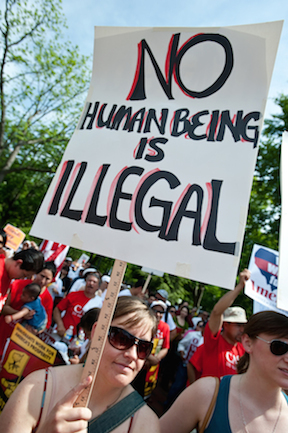Likely Changes to Immigration Policy Under Trump 2025
Ever since the election, the most common question I get during consultations is "How is Immigration Policy going to change under Trump?"
The good news is that the American Immigration Lawyer's Association (AILA) just hosted a roundtable discussing these anticipated changes, focusing on family immigration. And for the bad news: the changes are going to make most filings more difficult. Here's how...
Anticipated Changes in Immigration Practices Include:
Increased Restrictions: Anticipation of stricter scrutiny on applications for immigration benefits, reductions in interview waivers, and heightened document fraud investigations.
Discretionary Decisions: Greater use of discretion in denying applications, even for minor technicalities.
Processing Delays: Longer wait times for adjudications, more in-depth reviews, additional interviews, and possible denials without RFEs or NOIDs.
Policy Rollbacks: Changes in policies supporting applicants, such as Child Status Protection Act protections, BIA case precedents, and provisional waivers.
Revival of Prior Policy Memos: Return to policies from the prior Trump Administration, including the RFE/NOID memo that allowed for officers to exercise discretion and deny applications without an RFE or NOID, and revival of the Prosecutorial Discretion policies (or lack thereof) which will roll back current PD memos. This may also affect an Immigration Judge’s ability to administratively close or terminate removal proceedings for purposes of the I-601A.
The good news is that the American Immigration Lawyer's Association (AILA) just hosted a roundtable discussing these anticipated changes, focusing on family immigration. And for the bad news: the changes are going to make most filings more difficult. Here's how...
Anticipated Changes in Immigration Practices Include:
Increased Restrictions: Anticipation of stricter scrutiny on applications for immigration benefits, reductions in interview waivers, and heightened document fraud investigations.
Discretionary Decisions: Greater use of discretion in denying applications, even for minor technicalities.
Processing Delays: Longer wait times for adjudications, more in-depth reviews, additional interviews, and possible denials without RFEs or NOIDs.
Policy Rollbacks: Changes in policies supporting applicants, such as Child Status Protection Act protections, BIA case precedents, and provisional waivers.
Revival of Prior Policy Memos: Return to policies from the prior Trump Administration, including the RFE/NOID memo that allowed for officers to exercise discretion and deny applications without an RFE or NOID, and revival of the Prosecutorial Discretion policies (or lack thereof) which will roll back current PD memos. This may also affect an Immigration Judge’s ability to administratively close or terminate removal proceedings for purposes of the I-601A.
Specific Areas of Concern:
Deferred Action: Proactive steps advised for DACA renewals, U visa applicants, and special immigrant juvenile status (SIJS) cases to protect clients before policy changes.
Public Charge Rules: Likely re-emergence of stricter public charge standards requiring thorough preparation of affidavits of support and sponsor documentation.
Consular Processing Risks: Increased scrutiny at consulates, particularly in cases involving provisional waivers, with the potential for revocation of benefits due to additional inadmissibility findings.
Deferred Action: Proactive steps advised for DACA renewals, U visa applicants, and special immigrant juvenile status (SIJS) cases to protect clients before policy changes.
Public Charge Rules: Likely re-emergence of stricter public charge standards requiring thorough preparation of affidavits of support and sponsor documentation.
Consular Processing Risks: Increased scrutiny at consulates, particularly in cases involving provisional waivers, with the potential for revocation of benefits due to additional inadmissibility findings.
